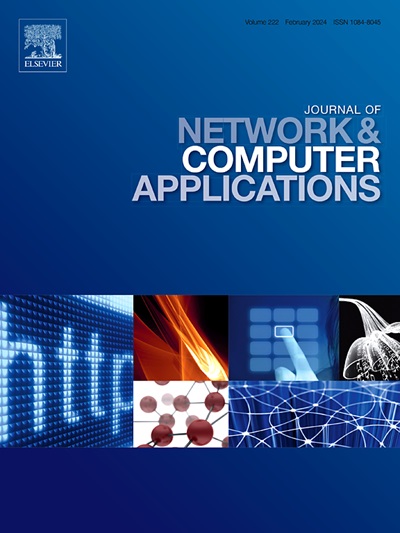认知无线电网络的深度学习框架:回顾与开放研究挑战
IF 8
2区 计算机科学
Q1 COMPUTER SCIENCE, HARDWARE & ARCHITECTURE
引用次数: 0
摘要
深度学习已被证明是解决认知无线电网络中频谱感知、频谱共享、资源分配和安全攻击等最重要问题的有力工具。在认知无线电网络中利用深度学习技术可以显著增强网络适应不断变化的环境的能力,提高整个系统的效率和可靠性。随着对更高数据传输速率和连接性的需求不断增加,B5G/6G 无线网络有望极大地促进新服务和新应用的发展。因此,深度学习在应对认知无线电网络挑战方面的意义怎么强调都不为过。这篇综述文章为潜在的解决方案提供了宝贵的见解,这些解决方案可作为未来 B5G/6G 服务发展的基础。通过利用深度学习的力量,认知无线电网络可以为下一代无线网络铺平道路,满足对更高数据速率、更高可靠性和安全性不断增长的需求。本文章由计算机程序翻译,如有差异,请以英文原文为准。
Deep learning frameworks for cognitive radio networks: Review and open research challenges
Deep learning has been proven to be a powerful tool for addressing the most significant issues in cognitive radio networks, such as spectrum sensing, spectrum sharing, resource allocation, and security attacks. The utilization of deep learning techniques in cognitive radio networks can significantly enhance the network’s capability to adapt to changing environments and improve the overall system’s efficiency and reliability. As the demand for higher data rates and connectivity increases, B5G/6G wireless networks are expected to enable new services and applications significantly. Therefore, the significance of deep learning in addressing cognitive radio network challenges cannot be overstated. This review article provides valuable insights into potential solutions that can serve as a foundation for the development of future B5G/6G services. By leveraging the power of deep learning, cognitive radio networks can pave the way for the next generation of wireless networks capable of meeting the ever-increasing demands for higher data rates, improved reliability, and security.
求助全文
通过发布文献求助,成功后即可免费获取论文全文。
去求助
来源期刊

Journal of Network and Computer Applications
工程技术-计算机:跨学科应用
CiteScore
21.50
自引率
3.40%
发文量
142
审稿时长
37 days
期刊介绍:
The Journal of Network and Computer Applications welcomes research contributions, surveys, and notes in all areas relating to computer networks and applications thereof. Sample topics include new design techniques, interesting or novel applications, components or standards; computer networks with tools such as WWW; emerging standards for internet protocols; Wireless networks; Mobile Computing; emerging computing models such as cloud computing, grid computing; applications of networked systems for remote collaboration and telemedicine, etc. The journal is abstracted and indexed in Scopus, Engineering Index, Web of Science, Science Citation Index Expanded and INSPEC.
 求助内容:
求助内容: 应助结果提醒方式:
应助结果提醒方式:


